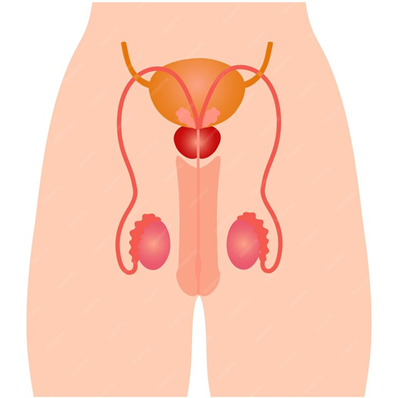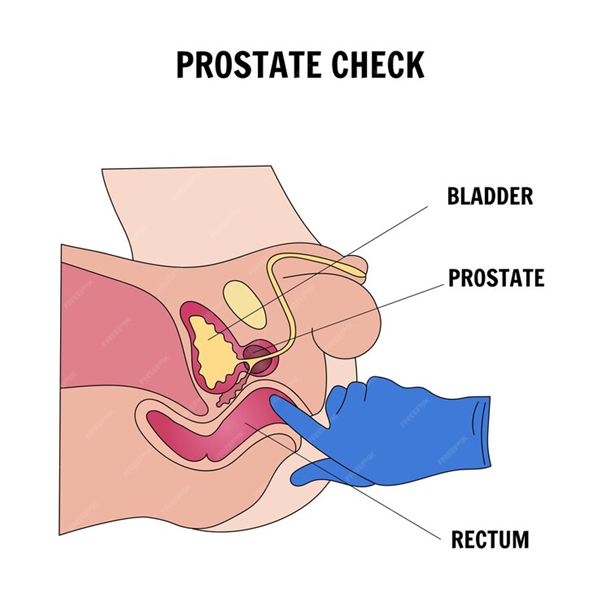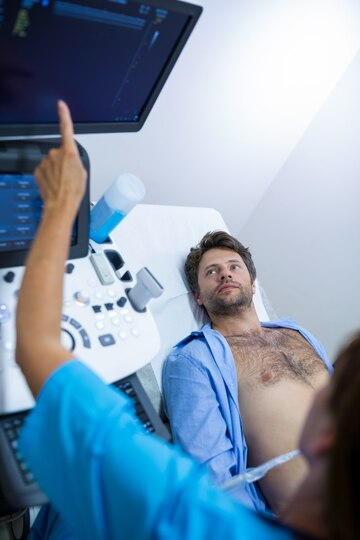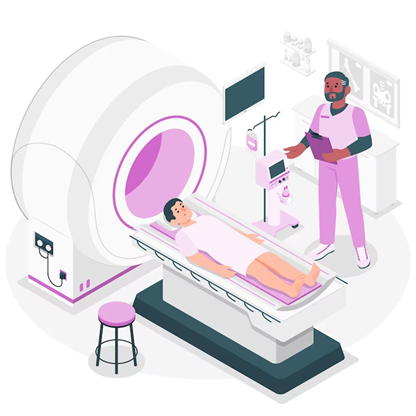- Have any questions?
- +91 90084 82284
- info@drsridharpsoncologist.com
Radiation Therapy After Prostatectomy

Cervical Cancer After Pregnancy
April 4, 2024
6 Weeks of Chemo and Radiation for Throat Cancer
July 5, 2024Recent research shows that adding radiation therapy after surgery for prostate cancer can really help. It can make the chances of getting better go up by about 25%. This is a big deal because it means doctors have a better way to make sure all the cancer is gone after surgery.
Dr. Sridhar PS is a doctor providing Cyberknife Treatment in India, working at HCG Hospital in Bangalore and Mumbai. Using his expertise, especially after surgery, he can really help patients recover better. It’s like having an extra layer of protection to make sure the cancer doesn’t come back.
Timing for radiation after prostatectomy varies, usually a few weeks to a few months, ensuring optimal healing before commencing.
How long after prostatectomy can you start radiation?

After prostate surgery, some men might need radiation therapy to make sure any remaining cancer cells are dealt with.
There are two main types:
Adjuvant Radiation Therapy:
- This is when radiation is given shortly after surgery, even if no cancer is visible.
- It helps ensure the survival of any tiny cancer cells that might be left.
- The patient usually undergoes this a few months after the surgery.
Salvage Radiation Therapy:
- If cancer comes back, seen through raised PSA levels, radiation therapy may be needed.
- This happens after prostate medications have been tried and when the cancer hasn’t spread beyond the area where the prostate used to be.
- The timing of this procedure depends on factors like PSA levels.
The decision on when to begin radiation depends on the individual case. Doctors consider factors like the pathology report, post-surgery PSA levels imaging (ultrasound, PSMA PETCT and MRI) and the patient’s overall health. Healthcare providers should help patients grasp their situation, enabling them to work closely with their healthcare team to plan the best treatment.
Take charge of your health and life – contact us today to learn when you can start radiation after prostatectomy.
If the doctors suspect any leftover cancer or things were a bit tricky during the prostate surgery, they might recommend radiation to make sure everything stays in check.
Who is a Candidate for Radiation Therapy After Prostatectomy?

The decision regarding whether an individual requires radiotherapy after prostatectomy hinges on various factors, primarily driven by two key scenarios:
1. Adverse Pathological Features:
- Pathology Report: Identifies tumor characteristics like positive margins or spread beyond the prostate.
- Purpose: Adjuvant radiotherapy targets cells, eliminating residual cancer cells and reducing the risk of recurrence.
2. Biochemical Recurrence (Rising PSA):
- PSA Levels: Increased figures post-surgery may signal cancer recurrence.
- Solution: Radiation therapy is an option if the local recurrence is confined to the prostate bed.
Factors for Candidacy:
- Pathology Report: Details on cancer extent, margin status, grades, and adverse features.
- Factors to monitor: Regular monitoring for signs of prostate cancer returning.
- Overall Health: Consideration of general health to ensure benefits outweigh potential harms.
- Communication with Healthcare Team: Open dialogue with the healthcare team for personalised decisions based on the patient’s situation and preferences.
Monitoring and Communication:
Regular check-ups with doctors (urologists) or cancer doctors (oncologists) are very important for keeping an eye on your health and talking about different treatments. These visits are a chance to see how well your treatment is working and to make any changes if needed.
In short, deciding to go for radiation therapy after prostate surgery is a careful choice. It involves looking at all the important health information and talking openly with your doctors to make the best decision for you. The role of regular visits is key in watching how things are going and optimizing the plan when needed throughout your treatment.
Discover if you’re a candidate for radiation therapy after prostatectomy – take charge of your health and life by contacting us today!
After getting rid of the prostate, radiation therapy can help mop up any lingering cancer cells, reducing the risk of a comeback and improving the chances of long-term control.
Benefits of Radiation Therapy Post-Prostatectomy
Radiation therapy following a prostatectomy, whether as adjuvant or salvage treatment, can provide various advantages:
Preventing Recurrence:

- Addresses any remaining prostate cancer in the prostate region post-surgery.
Treating Rising PSA Levels:
- Targets specific cells that may regrow which are causing elevated PSA levels after surgery.
Long-Term Control:
- Helps maintain cancer under control for an extended period, enhancing the likelihood of being cancer-free.
Better Survival Rates:
- Accurate execution of radiation therapy can be a life-saving measure, especially in advanced cancer.
Preserving Quality of Life:
- Successful cancer control minimises disruptions to daily life, contributing to an improved overall quality of life.
Personalised Care:
- Tailored treatment choices based on individual patient factors, ensuring alignment with their unique situation.
In conclusion, discussing with healthcare team members is crucial for understanding how radiation therapy is employed in a specific case and being aware of potential consequences.
Discover the success rate of radiation therapy after prostatectomy and take charge of your health and life – contact us today for personalised insights and guidance!
So, after getting your prostate out, there are pretty good odds to keep cancer from making a comeback.
What is the success rate of radiation therapy after prostatectomy?

Evidence from a significant 2021 study conducted at a leading medical institute supports the effectiveness of radiation therapy following prostatectomy in managing prostate cancer.
Biochemical Remission: The study showed an 88% rate of biochemical remission.
This implies that nearly five years post-radiation therapy, prostate cancer markers remained undetectable.
Patients maintained undetectable prostate cancer markers throughout the follow-up period.
Clinical Significance:
- Long-term Disease Control: Keeping diseases under control for a long time can greatly reduce the chance of prostate cancer or cancers nearby from coming back.
- Adjunctive Importance: The research highlights how important radiation therapy is after surgery for prostate cancer. It helps strengthen the fight against the cancer possibly returning.
The study highlights the effectiveness of radiation therapy after prostate cancer surgery. It’s good at reducing cancer indicators in the blood and keeping the cancer under control for a long time. This means radiation therapy is a valuable additional step in treating prostate cancer that hasn’t spread widely.
However, radiation therapy can cause side effects such as fatigue, urinary issues, and changes in bowel habits. These issues occur as the therapy targets and kills any remaining cancer cells. The severity of these side effects varies from person to person.
In certain circumstances were the patient denies surgerywho Radical radiotherapy SBRT – Cyberknife can be considered.
What are the side effects of radiation after prostatectomy?
Besides surgery to remove the prostate (prostatectomy), adding radiation therapy after the surgery (post-prostatectomy radiation therapy) as extra treatment is likely helpful. Prostatectomy is a favoured surgery for treating or preventing prostate cancer or its return.

Potential Side Effects:
Urinary Changes:
- Urinary Frequency: Increased need to urinate.
- Urinary Urgency: Feeling the need to urinate when the bladder is full.
Bowel Changes:
- Diarrhoea: Irritation of the rectum can lead to diarrhoea.
- Rectal Discomfort: Redness or irritation in the anal region.
Sexual Dysfunction:
- Erectile Dysfunction: Variable impact on erectile function.
- Decreased Libido: Some experience a decline in sexual appetite.
Fatigue:
- General Fatigue: Increased tiredness during radiotherapy.
Skin Changes:
- Skin Irritation: Redness, dryness, or soreness in the treated area.
Bladder Changes:
- Bladder Irritation: Irritation causing stinging or a sudden urge to urinate.
Long-term Effects:
- Chronic Bowel or Bladder Changes: Some may experience persistent symptoms.
Management and Communication:
- Attend promptly to notice side effects and communicate with caregivers for advice.
- Many side effects improve as the therapy progresses.
- Advancements in technology aim to minimize side effects, enhancing overall quality of life.
Patient Counseling:
- Before starting radiation therapy, thorough counseling with care providers is crucial.
- Understand case-specific risks, benefits, and potential adverse effects.
Follow-up Care:
- Periodic check-ups and ongoing support from caregivers for managing and addressing any post-treatment effects.
Staying informed, communicating with caregivers, and actively managing one’s health contribute to a better understanding of post-prostatectomy radiation therapy and its potential effects on individual well-being.
Empower yourself post-prostatectomy—stay informed, communicate with caregivers, and manage your health actively for optimal well-being during radiation therapy.
Getting ready for radiation therapy is like getting your game plan from the healthcare team – follow their instructions on diet, hydration, and side effect management to gear up for a successful treatment.
Preparing for Radiation Therapy Treatment

The preparation of radiation therapy treatment is not only a physical consideration but also a psychological one.
Here are some general guidelines to help you prepare for radiation therapy:
1. Educate Yourself:
Acquire full knowledge of your radiation therapy, time of sessions, frequency, and any possible side effects.Inquiring your healthcare providers questions that can help you to clearly understand the whole treatment protocol.
2. Meeting with a Medical Team.
Find an expert in a radiation oncology department who’ll talk to you about the objectives, probability of micro side effects, and what to do during and after treatment.
3. Physical Preparation:
Just in case you are given any directives for pre-treatment, like the instruction of your health provider, be sure to follow them.
Maintain good hygiene by following the rules of the radiation therapy like keeping it clean during the treatment.
4. Lifestyle and Diet:
Be sure to design your lifestyle so it includes healthy diet and regular exercises. However, it is recommended that you consult your physician prior to these if your healthcare team recommends otherwise. For good health, hydration is essential.
5. Emotional Well-being:
Ask for emotional support from friends, family or other networks. If you are referring to the phobia and trepidation you might have during the treatment, you can talk to your healthcare provider who can suggest you to see a counselor or a psychologist as well.
7. Clothing:
Wear comfortable clothes which are natural and loose fitting and will make the days more of the treatment a task to breeze through the procedures.
8. Skincare:
Follow whatever skincare directions you are given by the healthcare team so as to reduce skin reactions at the treatment sites that could be expected.
9. Medication Management:
Make sure to notify your treatment team in case you are taking other medications or supplements since they may suggest the medications continuity during the therapy and dosage changes.
10. Schedule:
Schedule your daily treatments to be on weekdays so that treatment sessions will not conflict with your allotted timing.
11. Stay Informed:
Regularly inform about the side effects possible and how to address them should they occur. Don’t hesitate to call your primary care physician or provider with all the queries you may have.
12. Support System:
Make sure you have a good support system in place, for instance, a friend whom you can take along to your appointment, and that he/she is there if you need assistance.
Prepare yourself for radiation therapy treatment and take charge of your health and life – reach out to us today for guidance and support!
Note that these are guidelines only and the details and information are provided by the healthcare providers of your case. Shared communication with your healthcare providers should be of great importance at all stages of the treatment.
Recovery and Follow-Up Care
Recovery After Radiation Therapy:
1. Follow-Up Appointments:
Be sure to attend all your follow up appointments to chart your progress.
2. Side Effects:
Make sure to inform your providers of any side effects you are experiencing.
3. Physical Activity:
Slowly begin to do all normal activities as advised by your doctor.
4. Healthy Eating:
Please adhere to a balanced diet and heed the dietary advice from your healthcare providers.
5. Stay Hydrated:
Take in sufficient quantities of water, unless advised otherwise by your doctors.
6. Emotional Support:
Remember to go on looking for support from your friends, family, or peer groups.
7. Follow-Up Tests:
Take required tests that your doctor recommends to check if there are any improvements. Regular PSA level and imaging is required to keep track of the disease status.
8. Medication:
Keep taking your prescribed medicines and make sure your doctors are also aware of any new medicine you take.
9. Sexual Health:
If you think that something is wrong with your sex life, do not hesitate to ask questions.
10. Communicate:
Keep in touch with your health care professionals and inform them about any concerns regarding your symptoms.
11. Lifestyle:
Set lifestyle tailored to doctors’ recommendations.
12. Long-Term Plans:
Confer retirement with your healthcare unit about the immediate objective and ongoing care.
Remember, the care providers are meant to be with you during this process. It doesn’t matter how well other people’s insights work, the most important thing is to check-in with them on a regular basis so it will also help yours to maintain its well-being.
Conclusion
After radiation, healing slowly happens. Remember to go to all your check-ups, share your concerns, and watch out for any new health issues. Slowly get back into your normal routine, eat well, and drink plenty of water. It’s also important to get support from your healthcare team for any emotional ups and downs. Make sure to do all the tests your doctor suggests and take any medicines they give you. If you have any worries about your sex life or future plans, don’t hesitate to ask for advice.
Take the first step to feel stronger! Find care that’s just right for you and start getting better today.
FAQs
Q: What is the life expectancy after prostatectomy and radiation?
A: Life expectancy varies, and personalized information can be obtained from your healthcare team based on your specific circumstances, considering factors like overall health and cancer stage.
Q: How long is a prostate radiation session, and how many sessions are typically needed?
A: A prostate radiation session lasts about 10 to 30 minutes. The total number of sessions depends on your treatment plan, which is determined by your healthcare team.
Q: What is the best diet after prostate radiation?
A: Follow a balanced diet with fruits, vegetables, and lean proteins. Specific dietary recommendations should be discussed with your healthcare team based on your individual needs and potential side effects.
Q: How might you feel after prostate radiation?
A: Common experiences include fatigue, changes in urination, and potential skin reactions. Communicate any concerns or side effects to your healthcare team for support and guidance.
